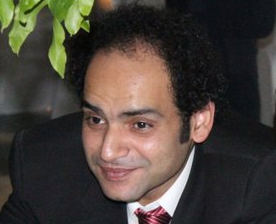By Richard Banks
Since the revolution I have visited Egypt three times and have talked to my clients in China, Europe and the Gulf about Egypt. I have seen both the current reality of the new Egypt and canvassed the opinion of those who are being targeted as investors.
Much of the international discussion of Egypt’s post-revolution investment case has an underlying theme that “the fundamentals remain the same.” Demography is destiny and Egypt’s demography is the same now as it was on January 24. Therefore the investment attractiveness of the country should also remain the same. But both FDI and portfolio investment flows from outside the country are sharply lower, which is understandable, but they look set to remain at a lower rate for some time to come and Egypt needs to act to regain lost ground.
The revolution, and its effect on investment, must be set against a troubled global investment environment. Data on FDI flows always lags but it is my belief that 2011 will not be a great year — anywhere.
Chronic debt concerns in developed markets and the continuation of global financial imbalances show that the systemic instability which lay at the heart of the 2008 crash remains. It is not, I believe, unreasonable to say that investment flows to Egypt would have shrunk in 2011 even if the revolution had not happened. This is the new normal and it isn’t pretty.
But the revolution did happen and I was fortunate enough to be here when it did. I am convinced that, despite the inevitable difficulties the nation will face, that Egypt is firmly on the right path. The demographic growth story which drives foreign investment in Egypt is, it is true, just as compelling now as it always has been. But the risk profile of Egypt has changed.
Investors are sitting on the sidelines watching political developments with interest. They are looking at the way Mubarak-era contracts are being scrutinized. Indubitably some of the business deals made during the Mubarak era were corrupt and scrutiny of contracts is both understandable and necessary. If the law has been broken then strong sanctions should be applied. This is the right approach — both for the country and for investors.
However, just because it is the right approach that doesn’t mean it is without cost. In a highly competitive globalised market for FDI this means it is better to wait and see than to take risk. Investors want to know what the new government will do. They want to know who the new government is. They want to understand the motivations of the government and the people — are they legal, political or economic? They want to know who they can trust.
It will take time for the investment environment to stabilize and for new methods and precedents to be established enough to give comfort to investors. But Egypt doesn’t have infinite time. People need jobs now, not in 10 years. It is important for the government, the public sector, the private sector and long-term global partners of Egypt, like Euromoney, to do what we can now to raise investment profile and capital flows.
This is a collaborative process. Rebuilding global investor trust in Egypt and explaining the new environment is the responsibility of us all. We need to talk to the people of Egypt, to the international financiers, to international companies, to investment funds and to the professional investment media. We need to do that consistently and constantly through a wide variety of channels and we must never stop.
At Euromoney we haven’t stopped. We continue to talk to potential investors about Egypt. We continue to visit and work with our clients in Cairo and elsewhere. We intend to continue to hold our annual investment conference in Cairo in the autumn. The complexity and fluidity of the politico-economic process in Egypt now means that investors are hungry for information and analysis. They need and want to understand. They want to assess the opportunity first hand. They know that uncertainty creates risk — but that it also creates opportunity.
Egypt must reach out to them, accept the challenges that exist and not falter in making its case. That is the only way that this great country will receive the capital flows, investment, jobs and growth which it both needs and deserves.
Richard Banks is the Consultant Director for MENA/Emerging Markets, Euromoney Conferences.

